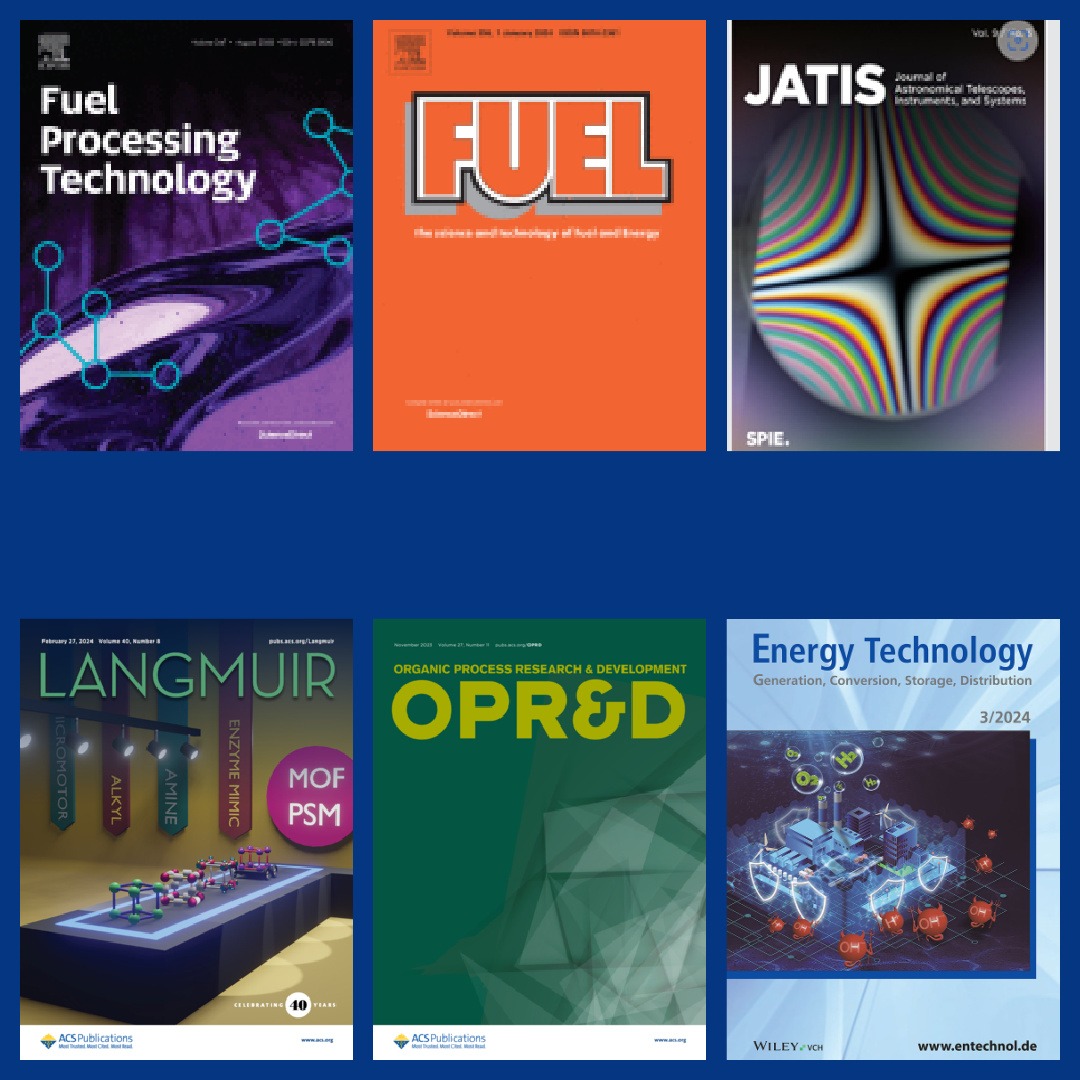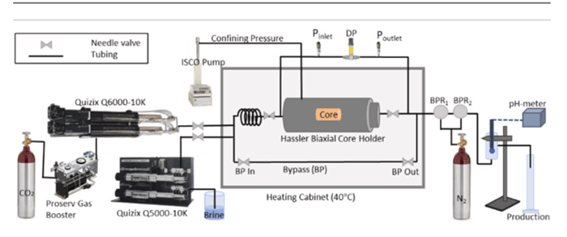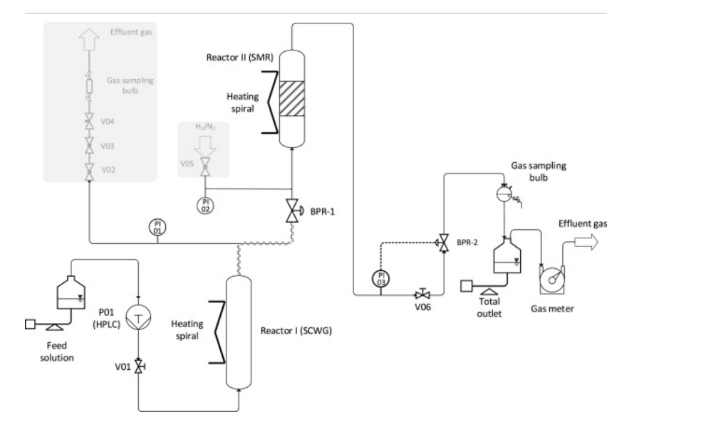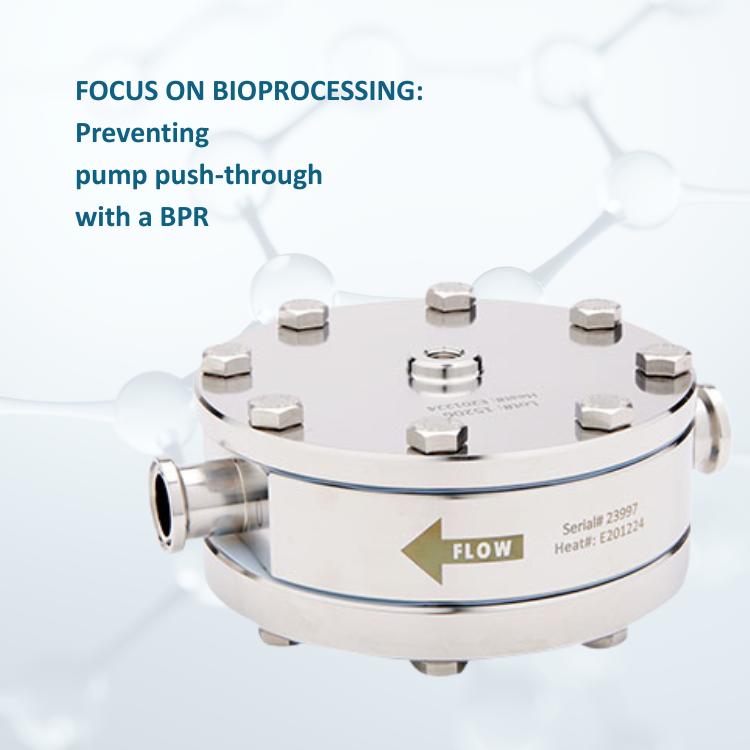Every March, the Equilibar team gets a fun reminder to focus on our university research customers when the NCAA basketball tournament teams are announced and our office bracket contest heats up.
The tournament is also our cue to do an informal annual survey of research publications citing Equilibar fluid control devices. This includes work conducted not only at US universities, but also at government, private and corporate research institutions around the world.
The 2024 survey shows that once again Equilibar has been cited in well over 100 scientific papers over the course of a year. We find it gratifying that a large percentage of the research involving our valves and regulators is related to sustainability efforts—from renewable energy to green manufacturing to reduction of greenhouse gas emissions to pollution mitigation.
Read on for a small sample of papers we’ve appeared in since the last NCAA tournament!
Green Energy: catalysis research
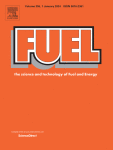 One of this year’s surprises was finding a study in which an Equilibar device was not only cited as a key instrument for research, but was also the subject of research. Fittingly, this study focused on the importance of choosing the best type of pressure regulator for catalysis, a chemical process used for a multitude of industrial applications and especially for green energy research. Equilibar back pressure regulators have been a favorite for catalysis researchers for more than a decade due to their ability to easily control the multi-phase flow of liquids and gases together. For a more technical explanation, see the paper: Biofuel upgrading via catalytic deoxygenation in trickle bed reactor: Crucial issue in selection of pressure regulator type – ScienceDirect
One of this year’s surprises was finding a study in which an Equilibar device was not only cited as a key instrument for research, but was also the subject of research. Fittingly, this study focused on the importance of choosing the best type of pressure regulator for catalysis, a chemical process used for a multitude of industrial applications and especially for green energy research. Equilibar back pressure regulators have been a favorite for catalysis researchers for more than a decade due to their ability to easily control the multi-phase flow of liquids and gases together. For a more technical explanation, see the paper: Biofuel upgrading via catalytic deoxygenation in trickle bed reactor: Crucial issue in selection of pressure regulator type – ScienceDirect
Renewable Energy: producing methanol via hydrogenation of CO2 with catalysts
 Catalysis is also the focus of this Cardiff University research on hydrogenation. Specifically, scientists were exploring a more sustainable way to synthesize methanol using hydrogenaton of CO2. This study is also notable because it cites Equilibar’s long-time partner, Integrated Lab Solutions, as the designer and manufacturer of the high throughput catalytic reactor used in the research. Read Zn Loading Effects on the Selectivity of PdZn Catalysts for CO2 Hydrogenation to Methanol here: https://link.springer.com/article/10.1007/s10562-023-04437-5
Catalysis is also the focus of this Cardiff University research on hydrogenation. Specifically, scientists were exploring a more sustainable way to synthesize methanol using hydrogenaton of CO2. This study is also notable because it cites Equilibar’s long-time partner, Integrated Lab Solutions, as the designer and manufacturer of the high throughput catalytic reactor used in the research. Read Zn Loading Effects on the Selectivity of PdZn Catalysts for CO2 Hydrogenation to Methanol here: https://link.springer.com/article/10.1007/s10562-023-04437-5
Green Energy: power-to-x conversion of hydrogen to methane
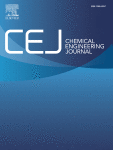 As the world seeks ways to make renewable energy more practical, it’s important to find different methods of converting electrical energy into storable chemical energy that can be used whenever and wherever it is needed. One way of doing this is to convert surplus electrical energy into easily storable chemical energy, a process which is referred to as power-to-x. Hydrogen can be obtained from renewable electrical energy using electrolysis, but since hydrogen is difficult to store long term and suitable infrastructure is scarce, it is advantageous to further convert it into methane, which can be stored and used in existing gas grids. Methanation of CO/CO2 mixtures: Evaluation of pellet size effect on methane formation rate and reactant selectivity – ScienceDirect
As the world seeks ways to make renewable energy more practical, it’s important to find different methods of converting electrical energy into storable chemical energy that can be used whenever and wherever it is needed. One way of doing this is to convert surplus electrical energy into easily storable chemical energy, a process which is referred to as power-to-x. Hydrogen can be obtained from renewable electrical energy using electrolysis, but since hydrogen is difficult to store long term and suitable infrastructure is scarce, it is advantageous to further convert it into methane, which can be stored and used in existing gas grids. Methanation of CO/CO2 mixtures: Evaluation of pellet size effect on methane formation rate and reactant selectivity – ScienceDirect
Green Energy: fuel cell stacks for electric generators
 Equilibar has years of involvement with different aspects of fuel cell research and its connection to the green hydrogen energy cycle. In this study from the Colorado School of Mines, scientists focused on a type of fuel cell that uses a solid oxide electrolyte to conduct ions as part of an effort to develop a high efficiency electric-power generator for backup or distributed power applications. Performance characterization of metal-supported solid-oxide fuel cell stacks at elevated pressure – ScienceDirect
Equilibar has years of involvement with different aspects of fuel cell research and its connection to the green hydrogen energy cycle. In this study from the Colorado School of Mines, scientists focused on a type of fuel cell that uses a solid oxide electrolyte to conduct ions as part of an effort to develop a high efficiency electric-power generator for backup or distributed power applications. Performance characterization of metal-supported solid-oxide fuel cell stacks at elevated pressure – ScienceDirect
Sustainability: pilot scale research turning food waste into biocrude oil for fuel
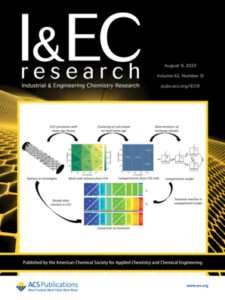 This pilot-scale research focuses on converting food waste into biocrude oil. Two types of food wastes—from a grocery store and a food processing plant, were processed to yield biocrude oil. The capacity of the process enabled large amounts of oil to be obtained from the reactor to allow downstream research on upgrading the biocrude oil for transportation fuel. Pilot-Scale Continuous Plug-Flow Hydrothermal Liquefaction of Food Waste for Biocrude Production | Industrial & Engineering Chemistry Research (acs.org)
This pilot-scale research focuses on converting food waste into biocrude oil. Two types of food wastes—from a grocery store and a food processing plant, were processed to yield biocrude oil. The capacity of the process enabled large amounts of oil to be obtained from the reactor to allow downstream research on upgrading the biocrude oil for transportation fuel. Pilot-Scale Continuous Plug-Flow Hydrothermal Liquefaction of Food Waste for Biocrude Production | Industrial & Engineering Chemistry Research (acs.org)
Climate Change Mitigation: carbon sequestration
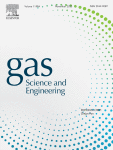 Carbon storage and sequestration are means of keeping carbon dioxide in a confined space rather than releasing it as a greenhouse gas to the atmosphere, thereby mitigating climate change. Equilibar devices have a history of success in research related to carbon sequestration, largely due to their ability to control multi-phase flow. Multi-scale dissolution dynamics for carbon sequestration in carbonate rock samples – ScienceDirect
Carbon storage and sequestration are means of keeping carbon dioxide in a confined space rather than releasing it as a greenhouse gas to the atmosphere, thereby mitigating climate change. Equilibar devices have a history of success in research related to carbon sequestration, largely due to their ability to control multi-phase flow. Multi-scale dissolution dynamics for carbon sequestration in carbonate rock samples – ScienceDirect
Green Energy: producing hydrogen via gasification of ethanol using supercritical water
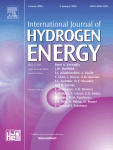 This research focuses on a continuous process for producing hydrogen from the gasification of ethanol using supercritical water. Equilibar has recently seen an uptick in applications involving supercritical water, which is water at a temperature and pressure in which distinct liquid and gas phases do not exist. Direct steam reforming of the product gas from ethanol gasification with supercritical water – ScienceDirect
This research focuses on a continuous process for producing hydrogen from the gasification of ethanol using supercritical water. Equilibar has recently seen an uptick in applications involving supercritical water, which is water at a temperature and pressure in which distinct liquid and gas phases do not exist. Direct steam reforming of the product gas from ethanol gasification with supercritical water – ScienceDirect
Sustainability: pilot plant for synthetic gas manufacturing
 This pilot plant study by Danish researchers demonstrates an improved way to manufacture synthetic gas so that CO2 production is reduced and it is more feasible to operate in combination with carbon capture and utilization. This study demonstrates the first operational experience with industrial scale electrified steam methane reforming technology using biogas as sustainable carbon feedstock.
This pilot plant study by Danish researchers demonstrates an improved way to manufacture synthetic gas so that CO2 production is reduced and it is more feasible to operate in combination with carbon capture and utilization. This study demonstrates the first operational experience with industrial scale electrified steam methane reforming technology using biogas as sustainable carbon feedstock.
Electrified steam methane reforming of biogas for sustainable syngas manufacturing and next-generation of plant design: A pilot plant study – ScienceDirect
Sustainability: environmentally friendly methods of managing plastic waste
 This study from Belgium’s Ghent University explores the role of pressure and temperature in thermochemical recycling of problematic plastic waste.
This study from Belgium’s Ghent University explores the role of pressure and temperature in thermochemical recycling of problematic plastic waste.
Thermal pyrolysis of waste versus virgin polyolefin feedstocks: The role of pressure, temperature and waste composition – ScienceDirect
Single Use Pharmaceutical Manufacturing: tangential flow filtration
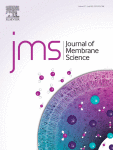 While it was not a surprise, we were happy to see the first study citing our single use back pressure regulator on this year’s list. This research featuring Sanofi scientists demonstrates how a single use back pressure regulator may be used to improve Trans Membrane Pressure for Single Pass Tangential Flow Filtration. Single Pass Tangential Flow Filtration is being explored to meet needs related to the pharmaceutical industry’s shift toward continuous drug manufacturing for improved yield and productivity. The paper was featured on our September blog and the original can be found here: Design of a process development workflow and control strategy for single-pass tangential flow filtration and implementation for integrated and continuous biomanufacturing – ScienceDirect
While it was not a surprise, we were happy to see the first study citing our single use back pressure regulator on this year’s list. This research featuring Sanofi scientists demonstrates how a single use back pressure regulator may be used to improve Trans Membrane Pressure for Single Pass Tangential Flow Filtration. Single Pass Tangential Flow Filtration is being explored to meet needs related to the pharmaceutical industry’s shift toward continuous drug manufacturing for improved yield and productivity. The paper was featured on our September blog and the original can be found here: Design of a process development workflow and control strategy for single-pass tangential flow filtration and implementation for integrated and continuous biomanufacturing – ScienceDirect
Green Pharma Manufacturing: biocatalytic aerobic oxidation synthesis
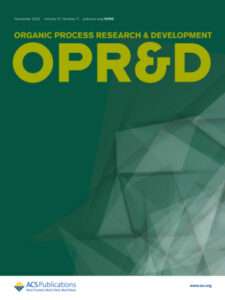 Another pharmaceutical-focused study features the work of Merck scientists, who are exploring ways to develop more efficient, sustainable green chemistries for pharmaceutical research, particularly in the field of biocatalytic aerobic oxidation synthesis.
Another pharmaceutical-focused study features the work of Merck scientists, who are exploring ways to develop more efficient, sustainable green chemistries for pharmaceutical research, particularly in the field of biocatalytic aerobic oxidation synthesis.
Automated End-to-End Workflow for Volumetric Mass-Transfer Coefficient (kLa) Characterization in Small-Molecule Pharmaceutical Development | Organic Process Research & Development (acs.org)
Machine Learning: deep neural networks
 Finally, it’s always interesting to find our devices cited in journals that seemingly have little connection to our usual work. This year, for example, Equilibar was cited in a paper in Machine Learning with Applications. The specific paper reported on research that involved using an Equilibar device to control pressure in a chamber immersed in a tank of water as scientists studied the use of artificial neural networks to infer data from ultrasound signals. Application of deep neural networks for inferring pressure in polymeric acoustic transponders/sensors – ScienceDirect
Finally, it’s always interesting to find our devices cited in journals that seemingly have little connection to our usual work. This year, for example, Equilibar was cited in a paper in Machine Learning with Applications. The specific paper reported on research that involved using an Equilibar device to control pressure in a chamber immersed in a tank of water as scientists studied the use of artificial neural networks to infer data from ultrasound signals. Application of deep neural networks for inferring pressure in polymeric acoustic transponders/sensors – ScienceDirect
For more inspiring research featuring our customers, search for “Equilibar” in popular databases of scientific journals such as Elsevier, Royal Society of Chemistry, and Google Scholar. Please note that some of the articles require a subscription service to scientific journals for full text access. Contact your institution for more information.
Be sure to follow our social media for updates on how our customer universities are doing in March Madness. This year we have customers at a record 33 of the universities in the men’s tournament and 34 in the women’s tournament! Our team has a lively bracket contest, as graduates of NC State, Purdue, Clemson, UNC, Kentucky, Tennessee and the University of South Carolina pull for their respective teams.
And, as always, we encourage you to contact one of our experienced application engineers about your specific fluid control challenge.


